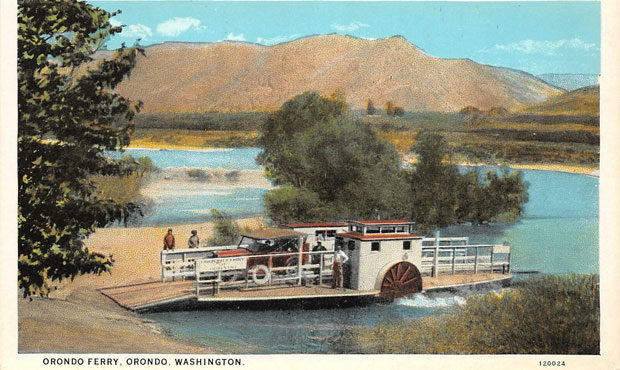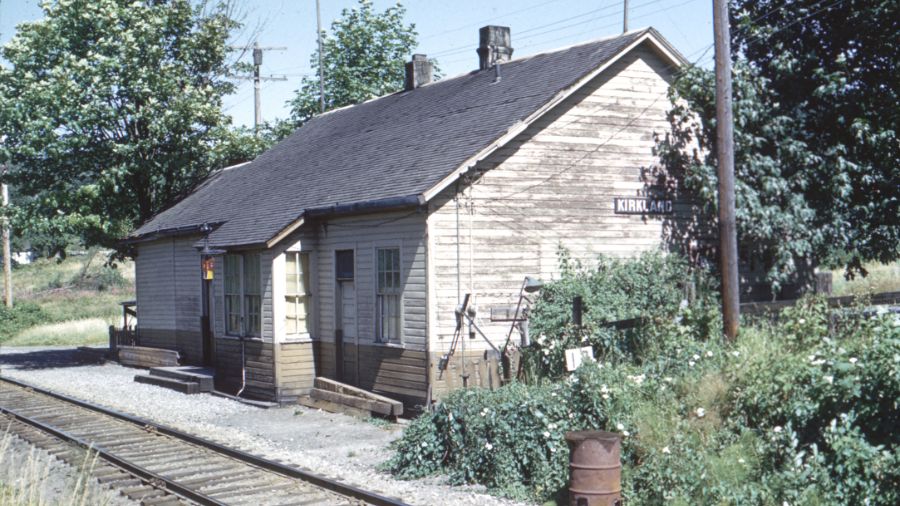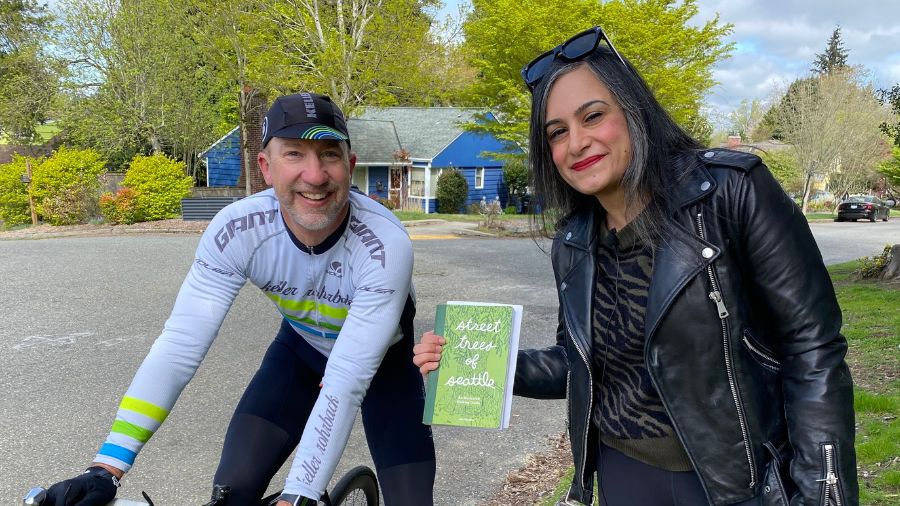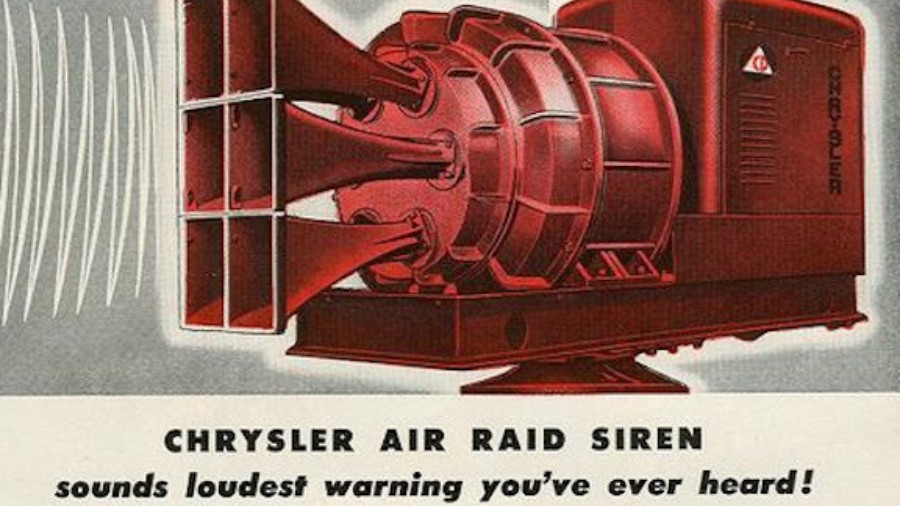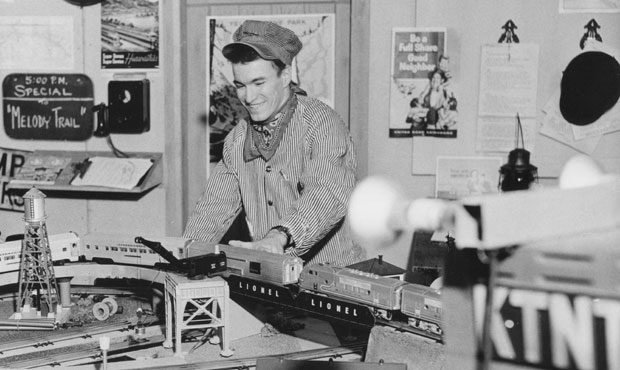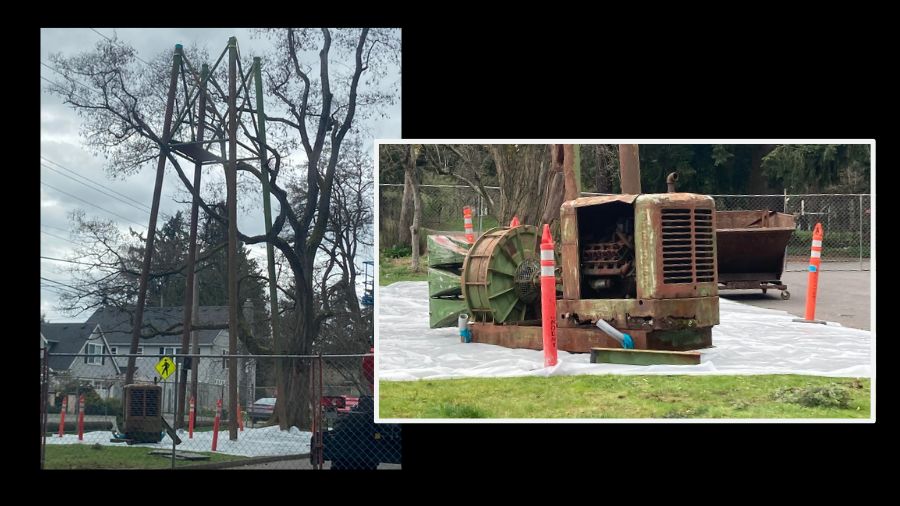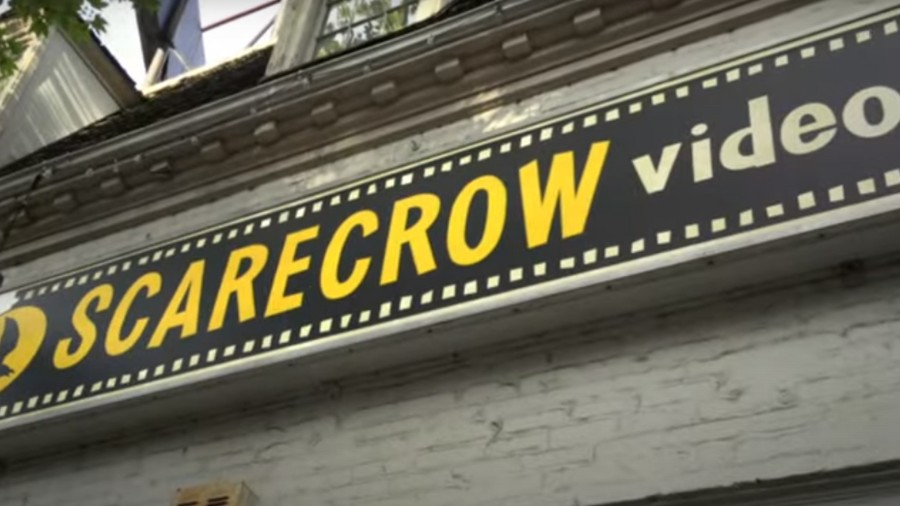All Over The Map: Long-gone ferry crossings at Orondo and Entiat
Sep 17, 2021, 5:29 AM | Updated: Sep 20, 2021, 2:50 pm
Crossing the Columbia River nowadays – with a few exceptions – requires driving on a bridge, whether at Megler, or Longview, Vancouver, or Vantage, or many other places along the path of the mighty river.
Before many of those bridges were open to vehicle traffic – and even after several of those bridges were already built – a number of small, private ferry crossings were in operation along the Columbia River as late as the 1950s and 1960s. By some estimates, in the pre-bridge heyday of river crossing, there were as many as 50 different ferries on the Columbia in the early years of the 20th century.
One of the ferry crossings that almost lasted to the 1960s was at Orondo. Orondo is upriver from the bridge at Wenatchee and downriver from the bridge at Chelan Falls, and a succession of small ferries were in operation there from the 1890s until New Year’s Eve 1959. They served travelers headed through the area, and local farmers moving crops and livestock to market or to alternate grazing areas.
Common sources say that Orondo was named by community founder J.B. Smith in the 1880s for a mythical figure related to copper mining around Lake Superior, though substantive documentation for this is hard to come by.
Vessels used in crossings at places like Orondo were nothing like the huge double-ender ferries that carry passengers and vehicles to places such as Bremerton or Whidbey Island. These small ferries were more like little barges that could carry just a few cars at a time, or perhaps as many as a half-dozen. Many river ferries were connected to cables that ran across the water to the other bank, so that the little boat wouldn’t have to fight the current. Some had side-mounted steam-powered paddle wheels, others had stern-mounted propellers. Some early examples were human-powered.
Construction of the Rocky Reach Dam in the early 1960s eventually created Entiat Lake, which inundated the Orondo ferry landing. Around the same time, highway improvements and bridges made profitable operation of small private ferries less practical. Still, some evidence of the old routes remain.
If you look today at Orondo on Google Maps, you can still see the short section of the vehicle path that leads from the main highway down toward the river – and it’s helpfully called “Old Ferry Road.”
The ferry may be gone, but Orondo is still home to another piece of Northwest history: Auvil Fruit Company. The grower and packer was founded in 1928 by Grady Auvil and his brothers, and is now employee-owned. Grady Auvil lived to be 93 years old, passing away in December 1998.
Ray Norwood is sales manager for Auvil Fruit. He’s been with the company for 25 years, and actually worked, early in his career, with founder Grady Auvil.
Auvil Fruit isn’t exactly a household name, but the brand name the company uses for its apples – “GEE WHIZ” – is pretty well known in the Northwest. Grady Auvil is still remembered in fruit-growing circles for being the first grower to popularize Granny Smith apples in the United States, which the company still grows, along with other varieties such as Royal Gala and Honeycrisp. Auvil grows cherries, too, so they’re packing fruit year-round at the company facility in Orondo.
And as for the origins of that perfectly clever and catchy “GEE WHIZ” brand name, Ray Norwood says the idea came from founder Grady Auvil.
“I think it dates almost all the way back,” Norwood told KIRO Radio. “Grady had a friend who commented on some of his fruit when he shared it with him — ‘Gee whiz, that tastes great.’ And that’s where he grabbed the name.”
“We have some photos of the original paper label,” he continued. “They used to glue them on the edge of the wood boxes. It’s a catchy name, and it’s hung on for all these years.”
And a ferry crossing just a few miles upriver from Orondo is something else that hung on for years, too. The Entiat ferry, which also dated to sometime around the turn of the 20th century, was in operation as late as 1965. Common sources say Entiat derives from the Indigenous phrase “En-ti-at-kwa,” which translates to, writes Place Names of Washington author Robert Hitchman, “rapid water.”
That water near Entiat must have been pretty rapid, given the colorful history of ferry mishaps that happened in that stretch of the Columbia. A basic search of the archives turns up newspaper clippings from an incident in June 1907 when the Entiat ferry, loaded with sheep, broke loose from its cable and started floating down river. It didn’t get too far until the steamer Chelan came to the rescue, tying a line to the ferry and towing it back upriver to Entiat – and newspaper writers had a field day writing about the errant floating sheep. A year later, the ferry broke loose again and took its helpless human passengers 12 miles downstream before it ran aground on the bank at Keeler’s Landing.
While there are no records of what any of those passengers said while they were free-floating down the Columbia, it’s a safe bet that their language was a good bit saltier than “gee whiz!”
You can hear Feliks every Wednesday and Friday morning on Seattle’s Morning News, read more from him here, and subscribe to The Resident Historian Podcast here. If you have a story idea, please email Feliks here.

